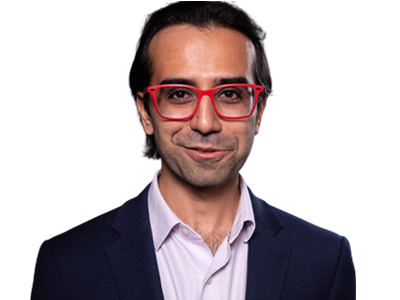Hosted By

Chief Executive Officer Cheeky Scientist

Join Isaiah as he explains how other people’s opinions can affect your life and why you should be careful about who you let in and ask for advice
Here’s a quick rundown of this week’s episode…
- First, Isaiah discusses the effect that other people’s opinion can have on your emotions and behaviors
- Next, Isaiah reveals why most people are better off trusting their instinct than asking for advice about their lives
- Finally, Isaiah illustrates how this can affect PhDs who are still in academia and what they should do if they want to avoid getting stuck
From This Week’s Show…
How Other People’s Opinions Can Change Your Emotions And Behaviors
Other people’s opinions about you and your career can be like viruses. They can infect you. No matter who you are or how strong you may be, other people affect your emotions and behavior. These feelings and actions circulate through social networks in patterns similar to that seen in epidemiological models of the flu virus.
A scientific study published by the Proceedings of the Royal Society estimated that every positive person you let into your life increases your chances of being positive by 11 percent, but every negative person you let into your life doubles your chances of becoming negative.
Yet, most people will let just about anyone into their lives. Most people are too free with those they let in and what they take in from these people vis-à-vis listening to their blather. They passively let negative people share their limiting beliefs and limiting opinions.
Why You Should Trust Your Inner Voice Rather Than Look For Advice
As counter-intuitive as it seems, most people make better decisions when they don’t ask for other people’s opinions. You’ll do better when you listen to your inner voice. This is because what you want in life is strongly affected by what other people want in life. Just seeing or hearing about what someone else wants, makes you want it too.
Other scientific studies reported in the Journal of Personality and Social Psychology show that people who watch someone else pursue a goal are more likely to pursue the same one. In fact, those same studies showed that people who simply read about another person pursuing a goal are more prone to seek it, too.
Likewise, when you hear advice about what other people want for you, you’re more likely to want the same thing. Their advice influences what you want. It can change your motivation, often for the worse. You can’t solve a personal problem with someone else’s answer. You can’t figure out what your limits are by using other people as a yardstick.
Most people, when faced with adversity, run to their friends and families to ask for help. What should I do? they ask them. Or, even worse: What do I really want? Who am I? Other people can’t answer these questions. You need to find these answers yourself.
The problem is that you’ve been conditioned to value other people’s opinions more than your own. You’ve been trained to want to be like other people, to think like them.
Not only are you taught to listen to other people, you’re also biologically wired to copy their behavior. Mirror neurons in your brain automatically cause you to copy your surroundings.
What This Looks Like For PhDs Stuck In Academia
Scientific research shows that people who are lied to are more likely to lie and cheat. Similar research shows that having an obese friend increases your chances of becoming obese by 171% and having a smoker in your family increases your chances of smoking by 61%.
Given this, what do you think the effect of asking other academics for advice about your job search and career is worth? What do you think the risks are?
If you’re surrounded by lifetime academics and only go to these academics for advice, you will end up like them. You will value the goals they value, think the way they think, and do what they do, and you will never, ever transition into industry.
It’s time to change who you hang around and who you listen to. Your job search and your career depend on it. This takes us to the end of today’s Transition Report. Remember your value and continue to think and act like a successful industry professional.
If you’re ready to start your transition into industry, you can apply to book a free Transition Call with our founder Isaiah Hankel, PhD or one of our Transition Specialists. Apply to book a Transition Call here.










